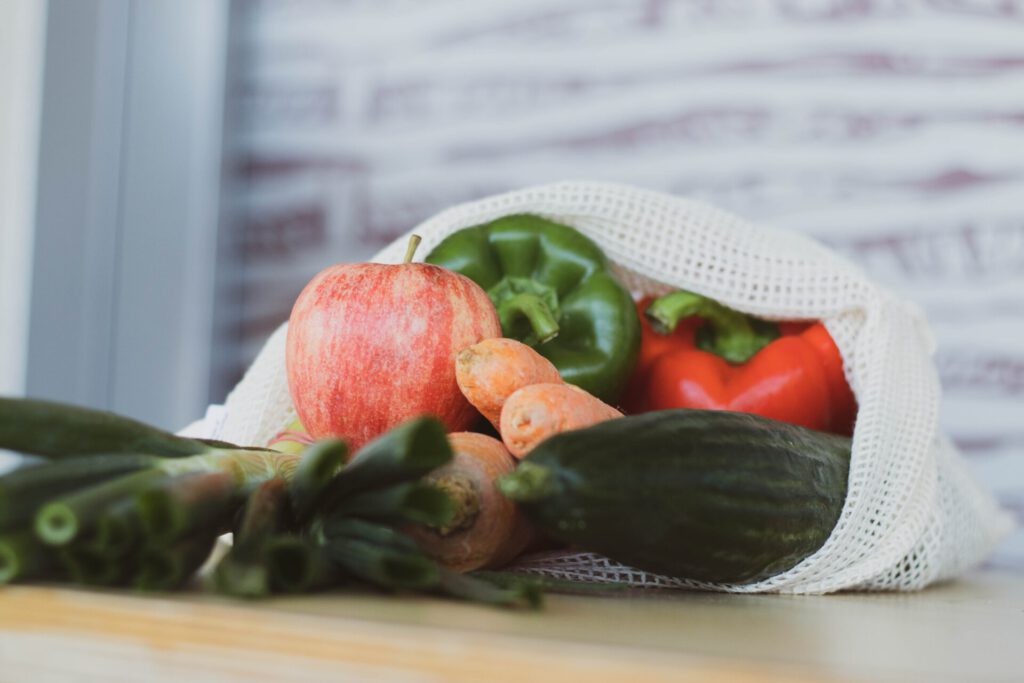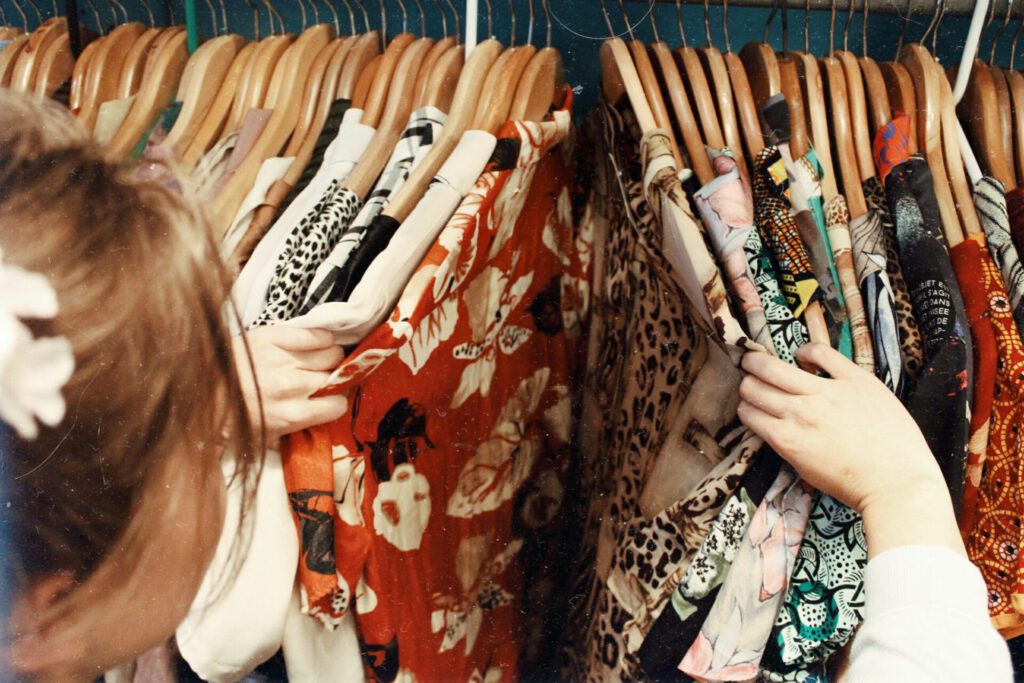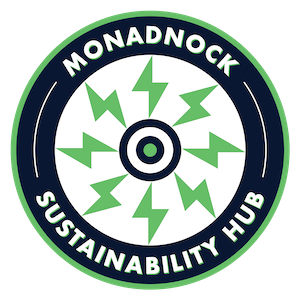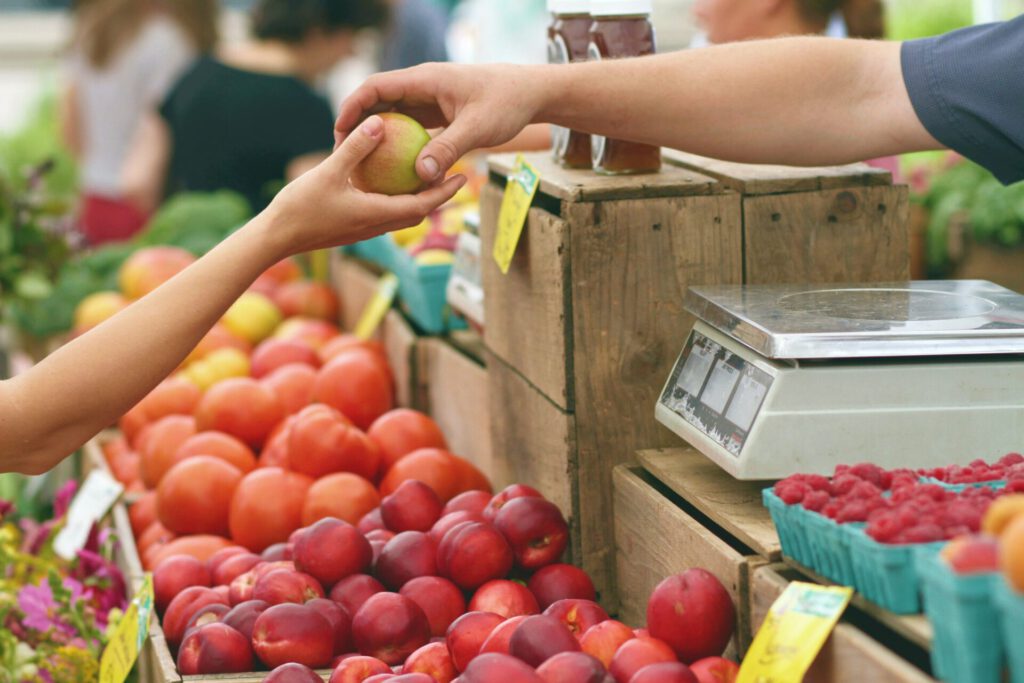By MSH volunteer & Monadnock local Jake Gehrung
Could your next trip to the grocery store or clothes outlet have an impact on climate change?
No matter who you are, climate change has already affected your life. From drought to unpredictable flooding, New Hampshire residents have had their fair share of climate change-induced challenges.[1] However, as this crisis intensifies, we can all play a role in mitigating its future impact.
You may be thinking, “okay, but I can’t afford solar panels or a fancy new electric vehicle, so I’m not sure what I can do.” Fortunately, there are simple and affordable ways for you to make a difference. Human-induced climate change is the result of greenhouse gas (GHG) emissions, some of which can be attributed to our daily activities. We all know that we are in dire need of climate-friendly national policies and significant societal change. But low carbon spending decisions made by thousands of households can really make a positive contribution.
 Every purchase you make sends a message to the market, so it’s important to send the right message when it comes to climate change. You can do this by making low-carbon choices with your common purchases. All products have a “carbon footprint” which is the total amount of carbon dioxide (and the carbon equivalent of other GHGs like methane) that were emitted to produce them.[2]
Every purchase you make sends a message to the market, so it’s important to send the right message when it comes to climate change. You can do this by making low-carbon choices with your common purchases. All products have a “carbon footprint” which is the total amount of carbon dioxide (and the carbon equivalent of other GHGs like methane) that were emitted to produce them.[2]
Your diet is a great place to start. Locally grown foods usually have lower carbon footprints because they forego the vast amounts of energy spent in transport.[3] Plant-based foods require much less energy and water to produce and thus have a much lower carbon footprint and production cost.[4][5]
Changing your diet may seem intimidating, but there are ways to make an easy transition. You can start with small steps—have meat only on certain days of the week, or limit consumption of red meat since beef has the heaviest footprint across energy, water, and emissions. [6]
Eco-labels are also an easy way to spot a climate-conscious product in the grocery store. B-Corp, for example, is a rigorous certification program that requires businesses to achieve high standards of both social and environmental performance, in addition to transparency and legal accountability. A major component of this program is climate action and public disclosure on efforts to mitigate climate impact.[7] Companies like Stonyfield Farm Inc. are well-regarded for their sustainability efforts, which are reaffirmed by their B-Corp certification.[8]
 Just like food, your clothes carry embodied costs of water, energy, and carbon emissions. Clothing and footwear industries together account for 8% of the total global climate impact. As with any purchase, your thoughtful clothing decisions can make a difference.[9] You might start by shopping second-hand when possible—thrift shopping is a fun activity and significantly reduces your carbon footprint! Check the tags for eco-labels and use of recycled or organic materials. You can also check out apps like Good on You, which provide key sustainability information on an apparel company with just a few taps.
Just like food, your clothes carry embodied costs of water, energy, and carbon emissions. Clothing and footwear industries together account for 8% of the total global climate impact. As with any purchase, your thoughtful clothing decisions can make a difference.[9] You might start by shopping second-hand when possible—thrift shopping is a fun activity and significantly reduces your carbon footprint! Check the tags for eco-labels and use of recycled or organic materials. You can also check out apps like Good on You, which provide key sustainability information on an apparel company with just a few taps.
As you start to think differently about shopping for food, clothes, and other products, beware of greenwashing. Some companies try to appear more climate-responsible by using marketing techniques and other strategies to exaggerate their sustainability efforts. You can spot greenwashing by looking for sustainable claims that aren’t backed by a third party. Terms like “eco-friendly” and “all-natural” are also used often to give an impression of being green, but these terms are vaguely defined and often can’t be substantiated by the company.[10]
Okay, so maybe you change your diet, buy second-hand clothes and consider the carbon footprint of your purchases, but does all this really make a difference?
Yes! You are not alone in this effort! As you start to live more sustainably, those around you will take note of your decisions and may very well change their own purchasing habits. You can accelerate this process by engaging in healthy conversation with your family, friends, and colleagues. Show off your newly thrifted flannel shirt or prepare a fresh salad using produce from the local food stand and share with your family. Let them know we all have the power to make household purchasing decisions that are climate-friendly.
About the Author
 Jake Gehrung is a High-Performance Buildings Analyst with the Resilient Buildings Group and a freelance writer. His career goal is to shift society toward sustainability and peace. With RBG, he manages a variety of residential LEED projects throughout New England, in addition to supporting several commissioning projects.
Jake Gehrung is a High-Performance Buildings Analyst with the Resilient Buildings Group and a freelance writer. His career goal is to shift society toward sustainability and peace. With RBG, he manages a variety of residential LEED projects throughout New England, in addition to supporting several commissioning projects.
Jake was born and raised in the Monadnock area. Before work with RBG, Jake developed strong sustainability acumen and a variety of skills through unique experiences. As an undergraduate researcher, Jake completed projects in New England, New Zealand, and Ecuador to broaden his perspective on environmental sustainability. Since then, Jake has worked in sustainable food systems, corporate sustainability, climate policy, ESG investing, social impact investing, waste management, and has written a variety of articles on sustainability issues. Jake hopes to continue growing as an ambassador of sustainability through new avenues and is particularly interested in sustainable development.
Resources
[1] https://monadnocksustainabilityhub.org/about/the-climate-crisis/
[2] https://www.ifu.com/en/product-carbon-footprint/
[3] https://www.canr.msu.edu/uploads/resources/pdfs/local_food_systems_and_greenhouse_gases_(e3178).pdf
[4] https://www.ncbi.nlm.nih.gov/pmc/articles/PMC5094759/
[7] https://bimpactassessment.net/?_ga=2.13212663.1799952349.1613260519-853173220.1613260519
[8] https://www.stonyfield.com/organic/environment/sustainability
[10] https://plana.earth/academy/how-to-spot-greenwashing/
Photos by Erik Scheel, Becca McHaffie, & Benjamin Brunner

